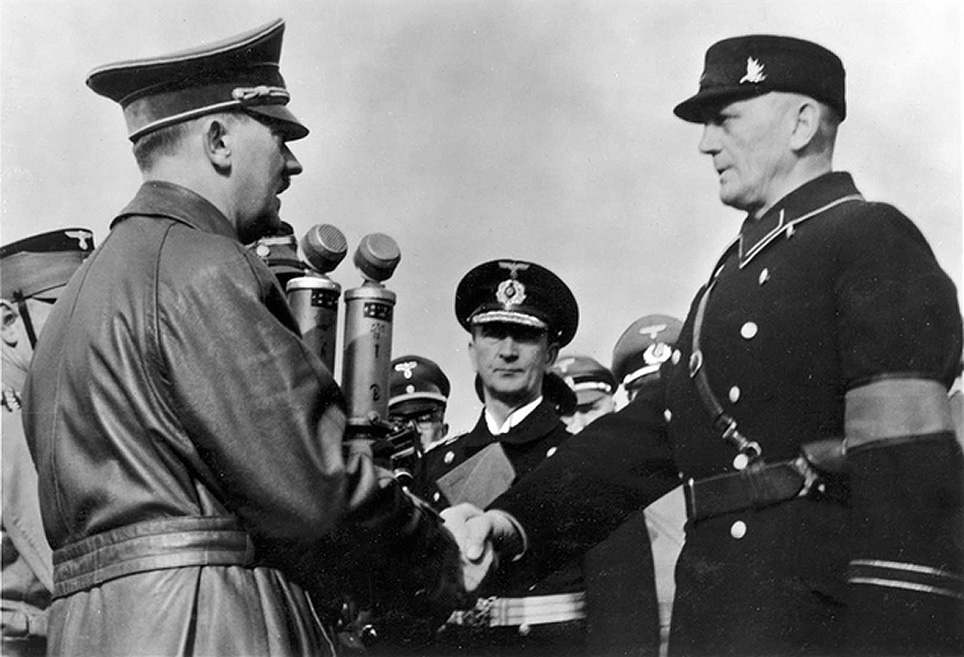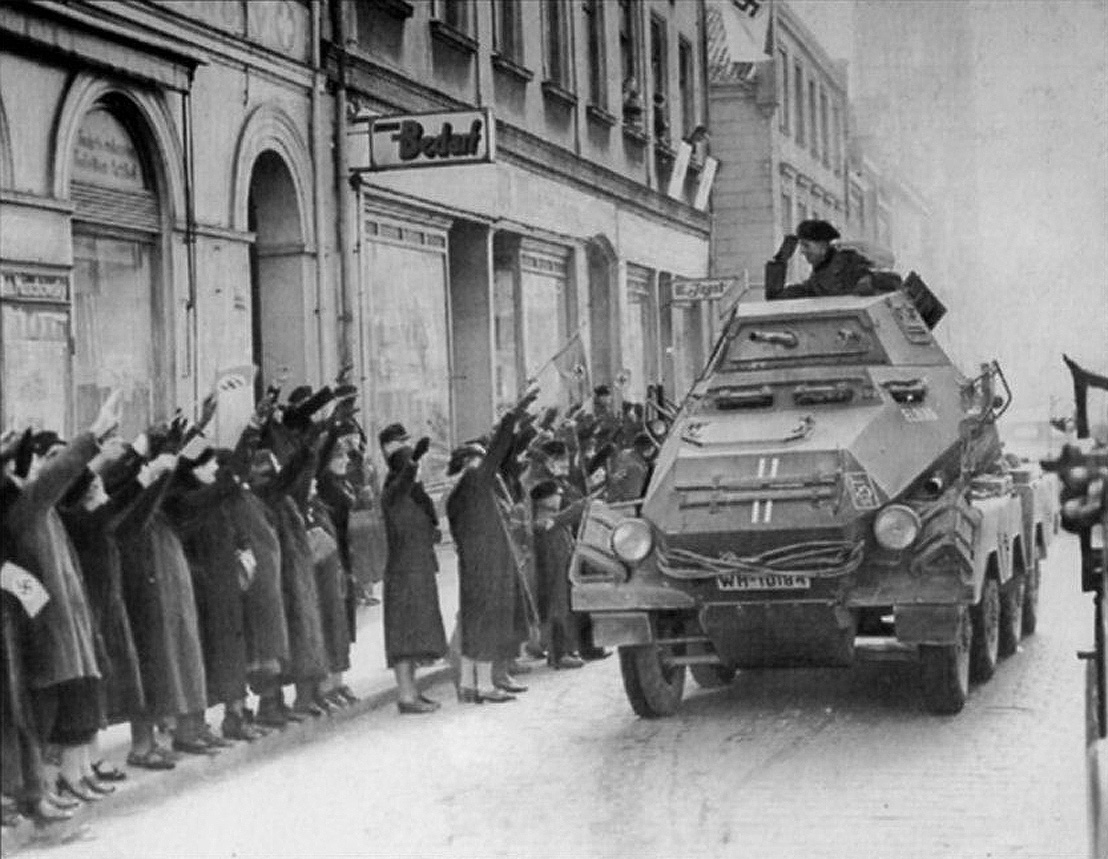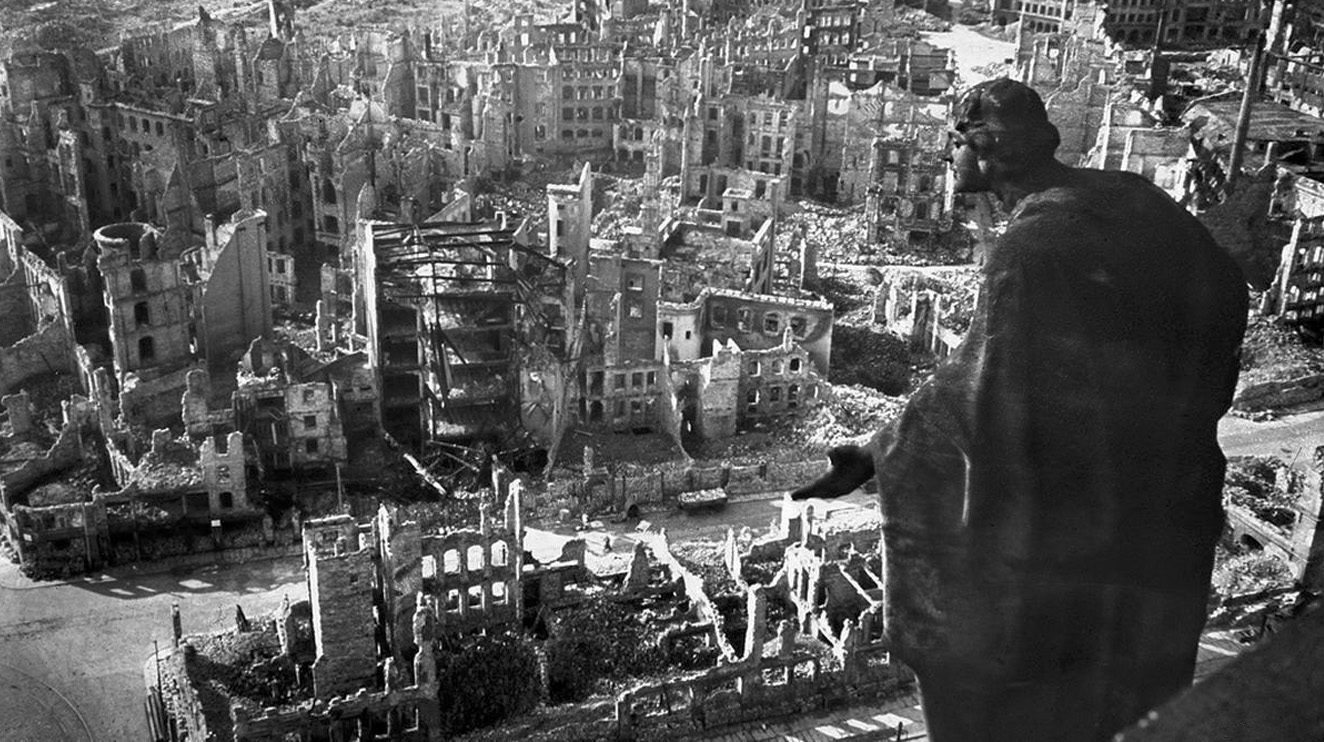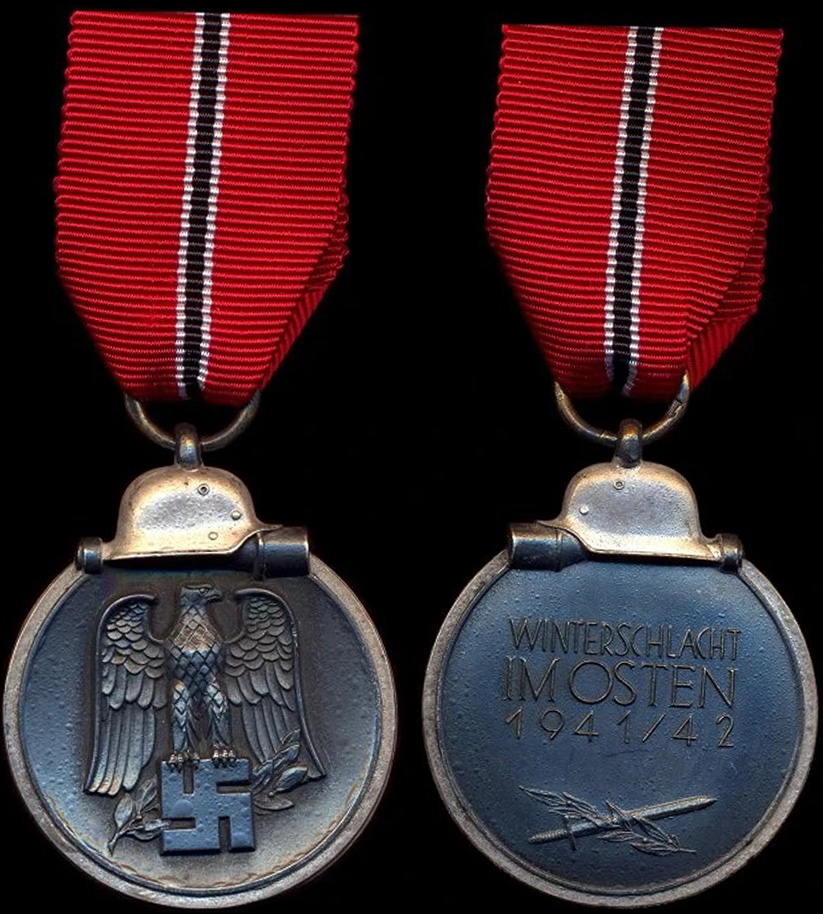Interview with Karoline "KK" Kondritz, whose husband fell in the East. She survived the Russian onslaught and the Allied genocide of Dresden. Munich, 1989.


Interview with Karoline "KK" Kondritz, whose husband fell in the East. She survived the Russian onslaught and the Allied genocide of Dresden. Munich, 1989.


KK: Yes dear, you are most welcome, and I should thank you for the gift. I am always leery of speaking about the past as it is truly not something I care to remember, as it was painful. I, however, will indulge you as I love that you are interested in the history of my old homeland.
So here it is. I come from Memel originally and stayed in the area until the Red Army came in 1944. I will start from the beginning, where I was born. I was born in 1918 and grew up right by the docks. We had a small home with a black fence and a well. My father was a customs officer, and my mother did a lot of sewing.
After the first war the land was taken over by Lithuania, I only know of this from my parents. There were border wars right after the end of the war and they forcibly invaded and made former Germans be their subjects. The Germans hated this, and small wars broke out around this area.
The Lithuanians did not seem to care for the Germans, and I remember growing up they always seemed to treat us as inferior to them, even though the town was created and built by Germans. They only managed what had already been built and perfected by Germans, my father always said.
I went to a German school, as the area was kept largely German, with only a few moving back to the Reich once Hitler came to power. There was always hope that someday we would return to Germany, as under Hitler things seemed to be going very well. In our area, under Lithuanian rule, it was hard. They taxed us unfairly and could confiscate property if they wanted to.
There was always a fear in the air that we had to be careful as we were being watched. However, that did not stop us from living and having a good time. I grew up in the 20s and learned to help my mother sew. We would sew clothes and patch up the workers’ clothes for a profit.
In the 20s it was very bad for almost everyone, as the depression hit, and money was very scarce so people had to make clothes last as long as they could. We provided a good service to people, and it kept us fed. Many would trade food stuff for our work, so we always ate well. Fish was always on the menu, it seemed, since we lived by the water. What else would you like to know about this time?
[Above: The left picture shows an example of postage stamps from the French occupation of Memel. Note these stamps use overprinted French stamps. On the right is an example of postage stamps from the Lithuanian occupation of Memel. Note the stamps at the bottom have triple overprints!]
[Above: Memel following French occupation following the Versailles Treaty stripping Germany of most of her land. This 50 mark note, from February 22, 1922, is known as a 'Notgeld' (emergency note) during the dark days of the depression. Front/reverse.]
Can you tell me how the people felt about Hitler, and what do you remember about the return to Germany?
KK: Well, Hitler was elected in 1933 and I remember it well as a 15-year-old girl. I was starting to mature and took an interest in politics. There was an air of hope in our area that Hitler would force a return. Germany was doing very well and the other nations around us seemed very jealous.
They did not like that they had former Germans who refused to give up our identity as Germans. We spoke German and had common bonds with German customs. Even though the Lithuanians took over, we were not part of them. Now look, we did not hate them or think of ourselves as superior and so forth, I think the way they treated us maybe brought out those sentiments in some.
I remember being a schoolgirl and we would have to interact with Lithuanian students who at times would mock us and some students I was told were attacked and bullied just for being German. I know the Poles were bad as well, where they tried to take German land and treated former Germans as second-rate citizens.
We started seeing in 1936 that Hitler was working to restore the lost lands, it was with a swell of hope we saw the Rhineland returned, and then Austria joined Germany, then the Sudetenland. Our turn came in 1939, in March. It was announced that Hitler had worked out a trade treaty with Lithuania who then agreed to cede the Memel land back to the Reich.
I remember that day well, the harbor and docks were swarmed with people as German ships came with military men. It was my first time seeing a German soldier. You could volunteer to house a soldier and receive credit, our neighbor did. That is how I met my husband.
I remember seeing all the warships in the harbor, and I even saw Hitler. He came and gave a speech and then toured the city. I was 21 back then, and it was a week of non-stop celebrations and parties. I met my husband in this week, he was in the 1st Division and was a mechanic.
He stayed next door and we bumped into each other while I was out stretching in our yard. He complimented me and I was bashful at first, but we started talking and he asked if I would show him around the city later as he had free time. My parents allowed this, and my father loved him, as he had a soft spot for soldiers.
We started a relationship and in December he asked for my hand, which my father agreed. In January of 1940 we were wed. I was one of the very first war brides.
[Above: Adolf Hitler shaking hands with the leader of the Memel Germans Dr. Ernst Neumann in Memel, 1939.]
[Above: Lithuanian postage stamps overprinted by the Germans 'Memelland ist frei!'. This was done in the first days following the liberation. The moose horn overprinted is due to the fact that the moose was the national symbol for east Prussia.]

What do you remember of the declaration of war?
KK: I remember it was very solemn, we young ones did not know of war, but our parents did, and they were fearful. There were some who welcomed the war, as it was a way to take back land and get revenge for the loss of the first war. I remember hearing some of the old talk of this feeling. I felt sad at this as I knew war could not be good, and I was fearful my man would be involved.
It all started because of Poland. They were given large areas of German territory, and I remember my father telling me about this as he would read the paper. Some Germans protested loudly and even fought against the seizures, and this started border wars with Poland that as I understand went on until the day the war started.
Poland even attacked red Russia to try to get more land from them as well, and they invaded Poland, almost taking over the country. The Catholics united and a small Polish army defeated the reds at the Vistula. This only emboldened Poland regarding Germany, and they sought to force former Germans to become Poles, which was not fair. This only created more hate and resentment.
I remember hearing about some of the attacks on Germans in Poland, I remember this as we also had attacks on Germans by Lithuanians. As I said this was a convoluted situation, as a nation took over and occupied land not of their own, there was resentment. The resentment led to harsh measures to gain control, which led to hate, and in small cases that hate led to violence.
I understand why many Germans welcomed this action in Poland as we all heard of the plight of refugees. We even had a small group that came into Memel, seeking protection after Polish mobs forced them out of their homes. We learned later some Germans were killed by these mobs, and this was before the war I believe.
What was it like for you in Memel during the war?
KK: Well I will tell you, it was peaceful for the most part at first. Poland fell easily and my man told of the action his regiment saw. I remember him telling me the Poles were sneaky fighters but could not match German tactics and weapons. He said he saw many prisoners and he spoke broken Polish so he would speak to them.
I remember him saying they seemed very nice and relaxed, they had a saying that was quite common, 'we are going towards Berlin, but not in the way we thought.' Things by us were very peaceful, even when Stalin occupied all the Baltics in 1940. They were right by us, and things were peaceful.
I will tell you this, when Stalin invaded the Baltics, the Lithuanians, who did not like us, suddenly begged to come to us for protection. I think there were thousands who came to get away from the reds. They were allowed to stay in or around Memel and my father said many were telling stories of abuses by the reds, he did not like the reds I remember.
My man was in the war in France, and was stationed there in 1940. I went to see him, it was a very warm fall and I loved going to the coast to see the English Channel. These were good times, however in 1941 the war started in the east, my man was home with me before this, and then his regiment was sent into action.
He did not have any idea they were moving against Stalin, but he told me they attacked east before Stalin could attack west. We could hear the fighting in the far distance at times if the wind blew right. I was very fearful, I remember. We had wounded come to the city and I volunteered to be a nurse aid to help. There were many organizations one could belong to, and we were all encouraged to do something to help the war effort.
My father died in 1942 of a heart attack, and in 1943 my mother died, they went to be together not too far apart. I felt alone for the first time ever, and then in August of 1943 my man was reported as missing in action after his workshop was attacked. I learned a few weeks later he was killed by a partisan attack while driving a truck he had repaired with wounded comrades, trying to get them to safety. He was awarded both Iron Crosses for this. I thank God that I had by now made many friends with the wives and relatives of other soldiers who were there to give me support. It was the hardest year of my life so far. I can say the many organizations made it more bearable. The youth groups sent me cards of sympathy and encouragement.
The army and party sent men to see that my finances were good, and that I had no pressing needs. We had been trying to have a child since 1941 and I am thankful in some ways that did not happen as it would have made me likely stay put when the war came to us. My man told me if anything should happen to him and if the war came close to leave right away.
I always had emergency money to take a train to the safety of the Reich. In late 1944 we knew the war was not going well at all, we could hear sounds of battle and I was hearing from some refugees that it was bad in the east. They told of the attacks on civilians and of the cruelty of the people against Germans.
The decision to leave was a hard one as it was home, but my man told me it would be bad to live under the Soviet system, as he saw the end result. He said the Russians lived like slaves to the system and it was not worth living like that. No freedoms, and everything you earned went to the state to make sure everyone was paid the same wage.
[Above: Germans in Memel salute a German armored column entering the city in March 1939.]

I understand you were in Dresden during the bombing. Can I ask how you came to be in the city?
KK: Yes, as I said I had saved an emergency fund, and I spoke to an officer who was wounded in the hospital, he said it was time for me to leave. He explained that the Russians were fueled by a false propaganda that had them believing German forces had raped, pillaged, and defiled Russia, and Russian women.
He told me any German women would not be safe from the mindset these soldiers had, in their minds they were exacting a fair revenge for the pain and suffering caused by Germans. He said this was false, they did not do these things, but the perceptions were all I needed to care about.
I left Memel with a girlfriend and first we went to Gotenhafen to get our bearings. Here we were forced by the authorities to stay and help refugees since we were medical volunteers. I protested that we were civilians who were only volunteering. A caring doctor told us he regretted that it was this way, but he really needed help. There were tens of thousands of civilians here all trying to get away from the Russians and the partisan bands.
I met a woman who was attacked by them on the way, she had been beaten and raped. It was horrible, as she also had a young daughter who showed signs of attack as well. I don't remember her age, but she was no older than 12. I still see the look in her eyes of shock and terror.
It was around Christmas time, I remember, and was finally given free pass papers to travel and decided to go south where I was told it was calm and peaceful. I was told by this doctor to go to Dresden, it was a city that had been spared by the war. My friend decided to stay as she felt a conviction to help all the refugees fleeing.
She was taken on board the ship Gustloff, which was sunk by the Russians, and tens of thousands of people died [The 'MV Wilhelm Gustloff' was a German transport ship which was sunk on January 30, 1945 by a Soviet submarine in the Baltic Sea while evacuating civilians]. I never heard from her again, so I know she died on the ship. I take solace knowing she died while caring for the masses of people who were fleeing a false vengeance. They did nothing to deserve the fate that had befallen them.
I arrived in Dresden in January, and it was indeed a peaceful city. I was trying to save myself from the war, but I also felt I need to still try to help people as best I could. The first thing I did was find a place to stay then I headed to the closest hospital. Dresden was at peace, I saw no evidence of the war anywhere, except the railyard had been attacked before.
I went to the main hospital but surprisingly they told me I was not needed. I had no medical license or special training, so they turned me down. I had an address a friend gave me of an acquaintance of theirs and they allowed me to stay with them while I figured out what to do.
It was fortuitous that they lived on the outskirts of Dresden, as the night the bombers came, I was far away from the city center. I remember that night, however, the sirens went off and I wondered if this was just another false alarm. The city had been slightly bombed before, and only on military targets it seemed.
We sought shelter in the cellar, and I remember hearing that long distant drone of motors overhead, it was scary as it was my first-time hearing this. Moments later we heard the first bombs hit, the ground shook. The bombs fell for probably a short time, but it seemed like a long time. I could start to smell smoke from the fires.
I remember we went to look out and the whole center was a big fire, with nothing able to be seen but flames. I saw the way it swirled, and it made a strange sound to me, like a windstorm. I could hear the fire service going into the city, and I also heard the delayed bombs going off, some were quite big it seemed. I learned after the war; these were dropped just to kill anyone who came to help rescue the trapped.
The next day more bombers came and bombed again, catching all the rescue people this time. I was almost among them as I was on my way to help when I was injured while walking over some rubble, I fell and twisted my ankle so I had to return to wrap it up. When I was finally able to go help, it was hours after the attack.
It was so bad I cannot describe it properly to you. Words cannot describe the scenes of suffering and destruction. I was grabbed by a nurse at the hospital I went to earlier, she recognized me, and asked me to help gather wounded for removal. I was told to be aware of planes as they came low and shot at anyone they could see.
I remember thinking what utter cruelty this war brought, to target civilians like this was pure evil. The dead I could see for the first time en masse, they were laid out everywhere as they were being pulled out of the rubble. Young, old, infirm, you name it, I saw them. This was too much for many. The crying and utter shock could be seen on many I helped.
More rescue people arrived in the days after the attack and the true devastation was understood. That city was a beautiful old German city and was reduced to rubble. They never rebuilt it fully from what I understand. The reds wanted to keep it as a reminder to Germans of what happens in war.
To make matters far worse, that winter was a very cold winter and those poor souls who left the city had a very bad time of it. Roads were clogged, rails were blown up, and there was no petrol. I left as soon as it was announced the Russians were going to be arriving soon. I was malnourished, I remember I had by now lost so much weight I was skin and bones, but still set out.
I joined a column of families who pulled their resources together to help. I remember they had brought a grandmother who perished outside Breslau, and it was so cold they could not bury her. This time of the war was very bad and hard to imagine if you did not see it.
One of the families had a relative in Erfurt, with a lot of land so we could survive there. We stayed together and I helped find us food and had time to even mend some clothes to help keep the young ones warm. I would run into other refugees, and we would trade food and talk about the situation. One theme was the Russians were behaving very cruelly to the population.
Almost everyone I spoke to told of seeing the excesses of the enemy that they witnessed or were victims of. The women who were raped were easy to see, they had that look of shock, shame, and confusion. I knew to be extra gentle with them and to not bring it up, only to say they are safe now and it will be okay.
When we finally arrived at this farm, there was hardly any food, and this family had been picked dry by all the requests for help. So, we had to get creative with what to make with the very few ingredients they had. They said the military, and others had come and begged them dry.
We set out to go to other farms and stores to try to find more food. The men went to cut wood so we would have a large stock as we felt more refugees would be coming. None of the refugees had any food, since they left in a hurry and these treks took weeks to do for some. Many of the infirm and sick simply did not make it, they were too weak to face the bitter cold. On top of this planes would come and attack these columns of refugees.
I saw the aftermath of this one day and it was depressing. To make this worse, in March the homeowner was called into the Volkssturm, and he had to go, which had been our protection. He was being sent to fight the Americans. A party official left us a wounded soldier and some Hitler Youth boys who were masters of survival I learned.
When they came our luck changed as well. They went on scouting trips and went to the rail yard. Here they found a train that was stalled due to an air attack. They were able to open cars which were loaded with food stuff. They said we better all go get it before others do or its found out.
We took anything that could be used to haul stuff, and so we gathered months worth of food for us. The weather started improving as well, and by April the Americans came and occupied the area. The owner had been captured outside the city and was released since he had been forced to fight.
He was impressed at what we had done, we set up a small community on his land. I had a shed to help sew and mend clothes, and so that was the end of the war for me. A very sad and costly affair for me, but I was able to turn my life into happiness here in Munich.
[Above: The 'good guys' weren't so good after all.]

KK: What a thing to argue about, I will say. One lost life is enough to make it a tragedy. However, I have seen on TV where they now seem to downplay the bombing. The city of Dresden had many refugee families in it. I remember going into the city center and every area was occupied with people seeking help from the cold. The city center seemed to be the rally point where people were getting directions and information.
We knew we had some time until the Russians would come so there was no urgency to leave. If you say to me that it was shown 200,000 died, I will say that is not impossible at all. There were that many people coming into the city. Now on the other hand, the east Germans say only 10,000-28,000 died. I think that is an insult to the victims. There were that many right in the main square, I saw the carts, wagons, and cars. People were sleeping in these as there was no more room.
I know the police directors were having a hard time getting the people to move on, they were causing a mess with horses and animals they were trying to bring with them. Fuel was non-existent so those who tried to drive were quickly out of fuel and stuck. So, I have to say the deaths had to be far more than what the magazines and media say today.
On the other hand, you must be careful not to inflate the numbers as that is just as wrong. While there were countless people in the city who will never be accounted for, many did survive and lived to talk about it.
I know in my country [USA] Germany is seen as the aggressor for attacking Poland with no provocation. Do you think Germany was right in attacking Poland?
KK: I must tell you I am against any type of fighting first off, I have seen too much for it to make any sense. For your question remember what I said earlier before about the relationship between Germans and Lithuanians. The same goes for Poles as well. I want to say also that there were good relations as well.
People could be very friendly; it was the politics that poisoned it all. Once talk of returning lost land came about then bad feelings started to happen. My man was in Poland fighting, and he told me that there had been some Polish excesses against Germans where the security people arrested and shot those responsible.
He told me the same thing happened in Russia as well, some people fought German civilians who had nothing to do with the war. I remember now, there was a family that had been living in Russia and were forced to move by the commissars, but they escaped and came to German lines.
They settled in Memel and came to the hospital to get checked over. They spoke very bad German, but I could hear the father talk about his children being attacked and beaten by other children, and his wife was threatened.
It could be bad if you were a German, so to answer your question while there is never an excuse for war, if Germans in Poland were being attacked before the war, then I suppose there could be a justification. I do know there were rumors, and the papers reported a few of them, that Poles were sneaking across the border and attacking farms.
I do not know if that is enough for a war, but at least it explains some of the feelings back then.
Did your man ever mention anything to you regarding seeing war crimes or anything regarding the Jews in the east?
KK: Oh the Jews, they always seem to come up whenever a foreigner talks about the war. No, he never said anything to me about things being bad in the east. He did say the weather was very bad, and he was given a medal for being in the first winter which was very hard on the soldiers.
He never really spoke of the war much, except for a few passing comments or funny stories. He said they used Russian prisoners often to help. Many did not care for Stalin, and were willing to help Germany, I remember that. He did say also there were attacks in the rear areas that militias were used for, and he worried they could turn on Germans. I always wondered if that is who got him in the end.
For the Jews, we had no idea what was going on with them. I know in Memel there were some who left when it was returned. I would hear the older people say Jews had been given unfair help in gaining high positions in trade, banking, and legal professions. So, when Hitler took over, they were forced to leave these professions.
In Memel there was a scandal in the Church where it was uncovered that a person who was Jewish had been pretending to be a Priest and did some bad things with money and someone's wife. He fled to Lithuania when it was uncovered. I remember after the war they showed us all the movies of what happened to them in the camps, and I felt bad for them. However, we did not know about any of this and I do not like how they act as if we knew and were part of it all.
[Above: The Winter Battle in the East 1941–42 Medal. Front/reverse.]

Back to Interviews